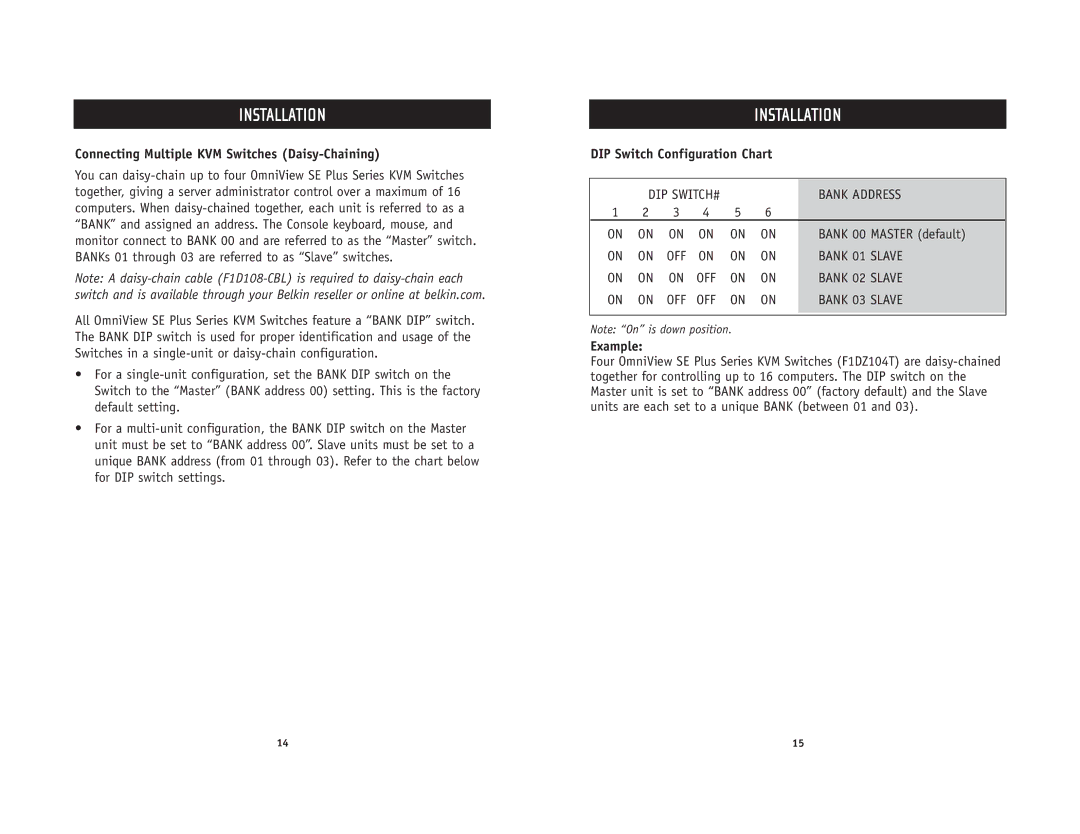INSTALLATION
Connecting Multiple KVM Switches (Daisy-Chaining)
You can daisy-chain up to four OmniView SE Plus Series KVM Switches together, giving a server administrator control over a maximum of 16 computers. When daisy-chained together, each unit is referred to as a “BANK” and assigned an address. The Console keyboard, mouse, and monitor connect to BANK 00 and are referred to as the “Master” switch. BANKs 01 through 03 are referred to as “Slave” switches.
Note: A daisy-chain cable (F1D108-CBL) is required to daisy-chain each switch and is available through your Belkin reseller or online at belkin.com.
All OmniView SE Plus Series KVM Switches feature a “BANK DIP” switch. The BANK DIP switch is used for proper identification and usage of the Switches in a single-unit or daisy-chain configuration.
•For a single-unit configuration, set the BANK DIP switch on the Switch to the “Master” (BANK address 00) setting. This is the factory default setting.
•For a multi-unit configuration, the BANK DIP switch on the Master unit must be set to “BANK address 00”. Slave units must be set to a unique BANK address (from 01 through 03). Refer to the chart below for DIP switch settings.
INSTALLATION
DIP Switch Configuration Chart
| DIP SWITCH# | | | BANK ADDRESS |
1 | 2 | 3 | 4 | 5 | 6 | | |
ON | ON | ON | ON | ON | ON | BANK 00 | MASTER (default) |
ON | ON | OFF | ON | ON | ON | BANK 01 | SLAVE |
ON | ON | ON | OFF | ON | ON | BANK 02 | SLAVE |
ON | ON | OFF | OFF | ON | ON | BANK 03 | SLAVE |
| | | | | | | |
| | | | | | | |
Note: “On” is down position.
Example:
Four OmniView SE Plus Series KVM Switches (F1DZ104T) are daisy-chained together for controlling up to 16 computers. The DIP switch on the Master unit is set to “BANK address 00” (factory default) and the Slave units are each set to a unique BANK (between 01 and 03).
